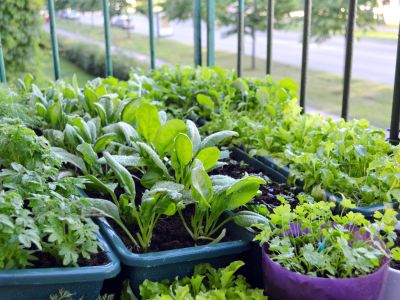Growing Crops in Small Spaces
Gardening in small spaces can be challenging, regardless of one’s level of expertise. From potted plants to window boxes, reaping the rewards of these unique gardens often requires trial and error in order to produce abundant vegetable harvests. Ideal crops for small gardens will vary depending on how they will be planted. While those growing in the ground will be able to sow vegetables with larger root systems, gardeners who choose to use containers may have more success with plants better suited to these growing techniques. Container gardens can also offer greater appeal in terms of adding visual interest, dimension, and color to otherwise dull spaces. Learning about growing crops in small spaces can help you utilize the limited space available. Begin exploring fall gardening ideas in the summer. At this time, many fall harvested crops can either be directly sown or transplanted. Gardeners can identify the planting time in their region by referencing the “days to maturity” listed on each seed packet.
Fall Crops for Small Gardens
Among the most popular fall plants for growing crops in small spaces are leafy greens. Plants such as kale, lettuce, and spinach are ideal due to their tolerance to cold and ability to produce a continued harvest late into fall. Root vegetables, like carrots, can also be grown in containers. While these crops are not as abundant, most do grow well in plantings where the soil is light and well-draining. Fall grown crops such as these benefit greatly from the cool temperatures this season brings. Choosing crops for small gardens can also include an array of herbs. Herbs are extremely versatile in terms of their adaptability. While growing plants like basil and mint outdoors is common, these same plants can also be moved indoors into a sunny windowsill with the arrival of cooler fall weather. This will allow small space gardening to continue indoors, even under more limited conditions. With careful planning, even those with small growing spaces can continue to produce their own crops throughout the fall and into early winter.
